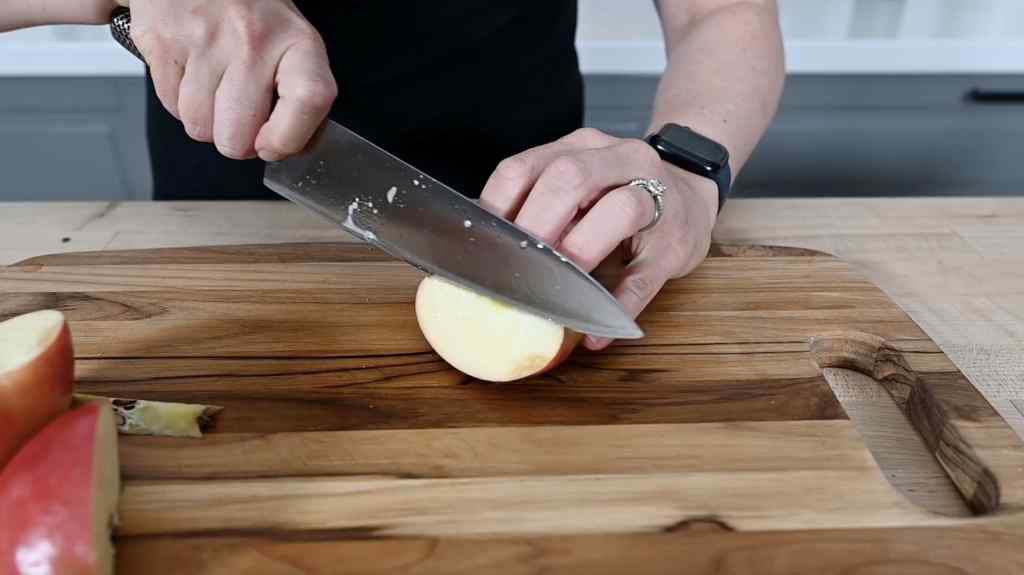In the sophisticated world of culinary arts, the knife is more than just a toolit's an extension of a chef's hand. For kitchen professionals, the allure of German knives is undeniable. Renowned for their precision, durability, and craftsmanship, these knives are a staple in many kitchens. However, the market is rife with counterfeits, making it imperative for professionals to know how to spot fake German knives.
Unfortunately, the proliferation of counterfeit knives can lead to professionals inadvertently purchasing subpar tools. This not only affects the quality of their work but also tarnishes the reputation of genuine German brands. In this article, we will delve into key indicators that distinguish authentic German knives from their fake counterparts.

Understanding the Hallmarks of Genuine German Knives
Before diving into the specifics of spotting fake knives, it's crucial to understand what makes genuine German knives so sought after. Authentic German knives are crafted with meticulous attention to detail and are known for their exceptional balance, sharpness, and longevity. Brands like Wsthof and Zwilling J.A. Henckels have set the standard for what a quality German knife should embody.
One of the critical aspects of identifying a genuine German knife is its hardness scale. German knives typically have a Rockwell hardness rating between 56 and 58, ensuring a perfect balance of sharpness and malleability. Learn more about the German knife hardness scale to understand what makes these knives durable and efficient.
Key Indicators of Fake German Knives
1. Inconsistent Branding and Logos
The first telltale sign of a counterfeit German knife is discrepancies in branding and logos. Authentic brands have consistent and distinct logos that are usually laser-etched onto the blade. Counterfeit knives might have uneven, blurry, or incorrectly spelled logos. To familiarize yourself with genuine logos, refer to our German knife brands comparison.
2. Poor Quality of Materials
German knives are renowned for their high-quality materials, often made from high-carbon stainless steel. Fake knives might feel lighter and less robust. Additionally, the handle might be made from inferior materials that don't offer the same ergonomic comfort as genuine knives. For insights on authentic handle designs, check out our article on German knife handle designs.
3. Lack of Balance and Weight
A hallmark of a quality German knife is its balance. When holding a genuine knife, there should be a sense of equilibrium between the blade and the handle. Counterfeit knives often feel top-heavy or awkward to handle, which can significantly impact cutting precision and safety.
4. Unusual Pricing
If a deal seems too good to be true, it probably is. Genuine German knives come with a price tag that reflects their craftsmanship and quality. If you find a German knife being sold at a significantly lower price than usual, it's worth probing further into its legitimacy.
Expert Tips for Ensuring Authenticity
While spotting the obvious signs of a fake knife is essential, there are additional steps you can take to ensure you're purchasing an authentic German knife. Firstly, always buy from reputable sellers or directly from brand-authorized retailers. This minimizes the risk of purchasing counterfeits.
Moreover, consider consulting with other professionals or looking into reviews and experiences shared in forums. For a deeper understanding of what chefs say about authentic German knives, you can explore our article on what chefs say about German knives.
The Historical Background of German Knives
The legacy of German knife-making is steeped in tradition and history. Solingen, often referred to as the 'City of Blades,' is the heart of German knife production. The expertise and techniques have been passed down through generations, ensuring that each knife carries the weight of centuries-old craftsmanship. To dive deeper into this rich history, consider reading about the history of German knife making.
Conclusion: Safeguard Your Kitchen Investment
For kitchen professionals, investing in genuine German knives is not just about owning a premium tool but about ensuring precision, safety, and longevity in their culinary endeavors. By being aware of the telltale signs of counterfeit knives and understanding the value of authentic craftsmanship, professionals can make informed purchasing decisions that enhance their work.
Remember, a knife is more than just a toolit's a partner in your culinary journey. Protect your investment by being vigilant and choosing authenticity over allure.

FAQs
1. Why are German knives so popular among chefs?
German knives are celebrated for their balance, durability, and precision. They are crafted with high-quality materials and have a reputation for maintaining sharpness over extended periods, making them a favorite among chefs.
2. What should I do if I suspect my knife is counterfeit?
If you suspect your knife is a counterfeit, contact the seller immediately. You might also consider reaching out to the brand directly for verification and further guidance.
3. Can fake knives affect my cooking?
Yes, fake knives can significantly impact your cooking. They may not offer the same precision, balance, or durability as genuine knives, which can affect the quality and safety of your culinary work.


























